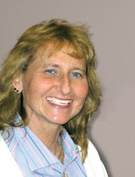*This article is part of IPS’ July focus on technology and its impact on public safety.*
By Kim Miller, Criminal Justice faculty member at American Military University
As a certified fraud examiner, most of my work is based upon open-source online investigations. Open-source intelligence (OSINT) is the use of publicly available material, often found on the Internet. The availability of these online sources is critical to the work of a fraud examiner and fortunately many of these sites are free to the user.
Location Tools

To locate an individual in a fraud case, Thatsthem.com is a free web site aggregator of public information that includes a person’s age range, cell phone number, religion, financial details, type of vehicle, and the exact VIN number of the vehicle. This site is surprisingly accurate—my vehicle type and VIN number were correct! (Note: There is an opt-out option on the home page, which I would highly recommend selecting).
Identifying a Fraudster via Twitter
Twitter is a commonly used social media site for fraudsters to contact each other. To investigate this activity, investigators can use a tool such as Mentionmapp.com. This site creates a visual graphic image of a suspect’s Twitter connections to other Twitter profiles and other strong Twitter associations. To use this site, an investigator must have a Twitter account.
Finding Stolen Goods
Often stolen goods are placed for sale on the Internet. Rather than individually searching some the commonly used online marketplaces like Amazon, Craigslist or eBay, investigators can use SearchTempest.com. This site allows investigators to conduct a search in a specific location and zip code and shows results from Craigslist, eBay and Amazon. Keywords can be specified to narrow the search. For example, in a search for a “Ford Mustang” 10 miles from zip code 07950, over 50 results were located on all three sites. A subset of SearchTempest.com is AutoTempest.com, which brings together used car listings from around the web.
Professional Conferences and Training Opportunities
The world of social media is changing rapidly and investigators must stay abreast of new tools to help with fraud investigations. For those interested in a career as a fraud investigator, one seminar to consider attending is the Online Social Media & Open Source Investigator’s Summit (OSMOSIS) taking place in Las Vegas from October 12-14, 2015. This summit was developed by OSINT investigators for the legal, educational, business, accounting, and investigative community. The OSMOSIS summit educates attendees about the most cutting-edge methodologies and power techniques for investigators to get actionable search results.
This year, experts will offer non-stop training on the latest cellular and desktop social media investigations, open source searching, asset research, and borderless possibilities on the international front, as well as the legal implications. If you are interested in learning more about this seminar, please email Kim Miller at kim.miller868@mycampus.apus.

Comments are closed.